Do you have some hardscaping questions? We have your answers.
Whether you’re looking to invest in a new patio and walkway or simply want to do some research, you will naturally have some questions. Instead of making you dig through all our articles and content, we decided to put together the most frequently asked questions we get here at Coastal Hardscapes.
Read below for 21 of the most frequently asked hardscaping questions along with the answers you need!
21 Frequently Asked Hardscaping Questions
1. First, what is hardscaping?
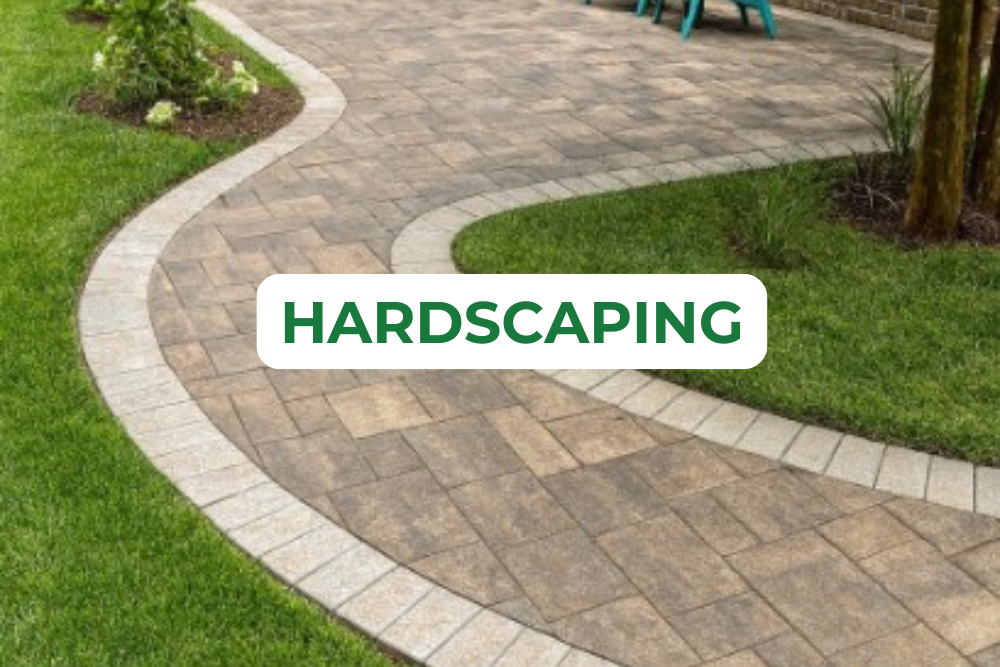
The most popular question we get: What is hardscaping? Hardscaping includes all built outdoor features that require a structural foundation, such as patios, walkways, and retaining walls. Hardscaping in Savannah creates a durable and year-round space to enjoy.
Quick Highlights:
• Non-living outdoor features
• Built from stone, pavers, concrete, or wood
• Adds structure, function, and usable space
2. What is the difference between hardscaping and landscaping?
The key difference between hardscaping and landscaping is the materials used. Hardscaping uses pavers, concrete, wood, and rocks to build, while landscaping uses plants and soil. Most homeowners in Richmond Hill and Savannah infuse both hardscaping and landscaping simulatensoly into their outdoor living spaces.
Quick Highlights:
• Hardscape = built elements
• Softscape = plants and soil
• Together they create a balanced outdoor design
3. What types of features count as hardscapes?
Patios, walkways, fire pits, outdoor kitchens, retaining walls, pergolas, and seating areas are the most common hardscape features we install. Additionally, river rock, lighting, and other unique features such as a water fountain, can be considered hardscaping as well.
Quick Highlights:
• Patios, walkways, retaining walls
• Fire pits, outdoor kitchens, pergolas
• Any permanent, built outdoor feature
4. Why should I invest in hardscaping for my home?
The simple answer we tell customers is this: Hardscaping expands outdoor living space, boosts home value, and adds durability that holds up in Savannah’s humidity and Coastal GA storms. It’s one of the best long-term improvements for your comfort and curb appeal.
Quick Highlights:
• More usable outdoor space for hosting in Savannah
• Strong boost in curb appeal and home value
• Long-term value and durability
5. What materials can be used for hardscaping projects?
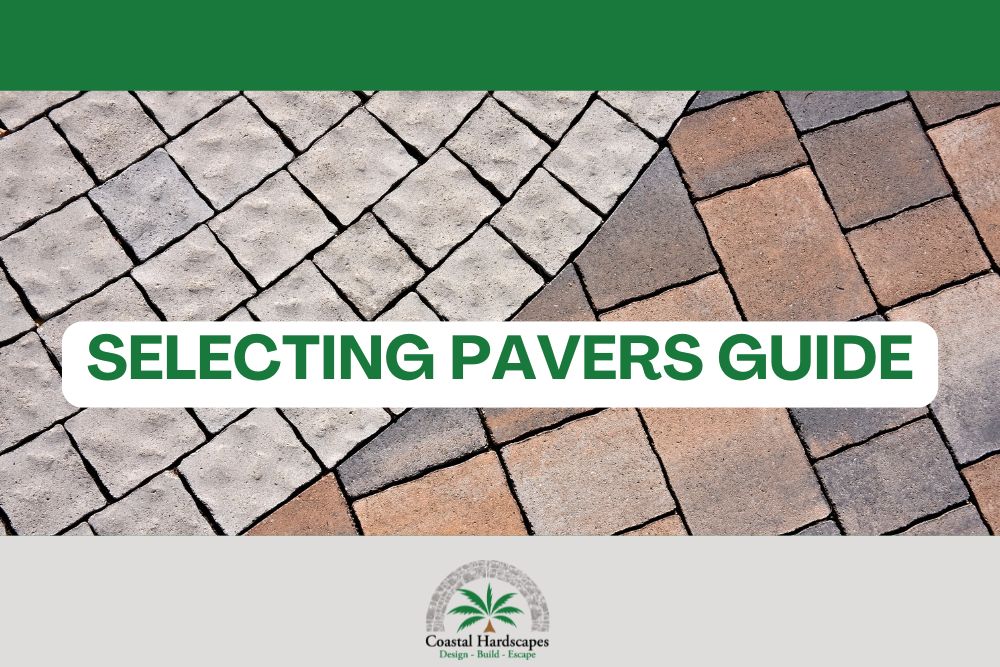
Popular hardscape materials include pavers, natural stone, concrete, brick, and gravel. Some projects will use just one or a combination of all materials. We recommend paver stones due to their durability and aesthetics.
Quick Highlights:
• Pavers, natural stone, concrete
• Brick, gravel, wood structures
• Chosen based on style and budget
6. How do I choose the right material for my yard and budget?
We just mentioned it, but pavers perform best in Savannah and Coastal GA because they resist moisture, shifting, and extreme heat. Ultimately, you can choose materials based on your home’s style, budget, and local factors.
Quick Highlights:
• Consider budget and durability
• Match your home’s style
• Select materials suited for the local Coastal Georgia climate
7. What are the most popular hardscaping features?
In Pooler and Savannah, homeowners love paver patios, fire pits, outdoor kitchens, walkways, and retaining walls. Essentially, the features that support year-round outdoor living in Coastal GA’s warm climate are perfect for gathering and hosting!
Quick Highlights:
• Patios and outdoor kitchens
• Walkways, fire pits, seating walls
• Functional spaces for daily use (like walkways)
8. How much does a hardscaping project cost?
Hardscaping costs depend on size, materials, design, and drainage needs but can start as little as $2,000 for a walkway and go up to $50,000 for a new driveway. Patios and outdoor kitchens in Savannah or Richmond Hill vary widely, but professional design ensures long-lasting value in Coastal GA conditions.
Quick Highlights:
• Depends on size and materials
• Custom design impacts pricing
• Quotes vary widely by project goals
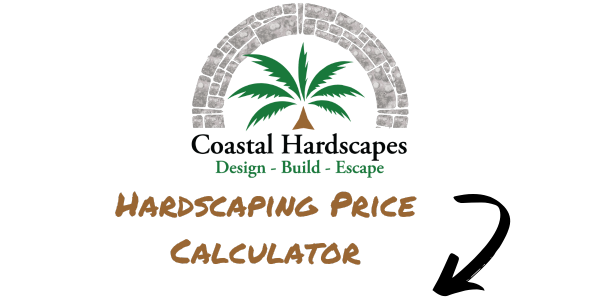
9. What factors influence the price of a patio, walkway, or outdoor living space?
The size of the project is the ultimate determining factor in price when installing a new hardscaping feature. A large patio will cost more than a small one due to labor and materials. Additionally, site prep and the complexity of the design can also increase or decrease the cost of your patio or hardscape. The more complex, the more expensive.
Quick Highlights:
• Materials and square footage (bigger means more expensive)
• Site prep and drainage needs
• Design complexity
10. How long does a typical hardscaping project take?
Once materials are on site we can install most projects in a matter of a few days here at Coastal Hardscapes. 90% of the work is typically done in 48-96 hours. However, punch out work and small tweaks may take another day or two.
We typically tell most of our clients that from meeting our team, to designing, to ordering materials, to installing, and to reviewing the entire process takes a minimum of one month to ensure quality is upheld.
Quick Highlights:
• Small jobs: a few days
• Large builds: 1–3 weeks
• Weather and design affect timing
11. When is the best time of year to start a hardscaping project?
Fall and winter are ideal planning seasons for Savannah, Pooler, and Richmond Hill. Spring builds are common, but demand is high, so we recommend early scheduling to avoid delays. An insider secret is to have your hardscaping installed in the winter!
Quick Highlights:
• Fall and winter planning
• Spring build season
• Early scheduling avoids delays
12. Do I need a permit for a hardscaping project?
Requirements vary throughout Coastal GA, so checking local codes is essential, but some counties like Chatham County, require permits for major structures and things like retaining walls due to the load-bearing nature. Our rule is always to check, but we can help you! For example, in Chatham County, retaining walls over 18” high require a permit.
Quick Highlights:
• Some structures require one
• Retaining walls often need approval
• Local codes vary
13. How important is proper base preparation and drainage?
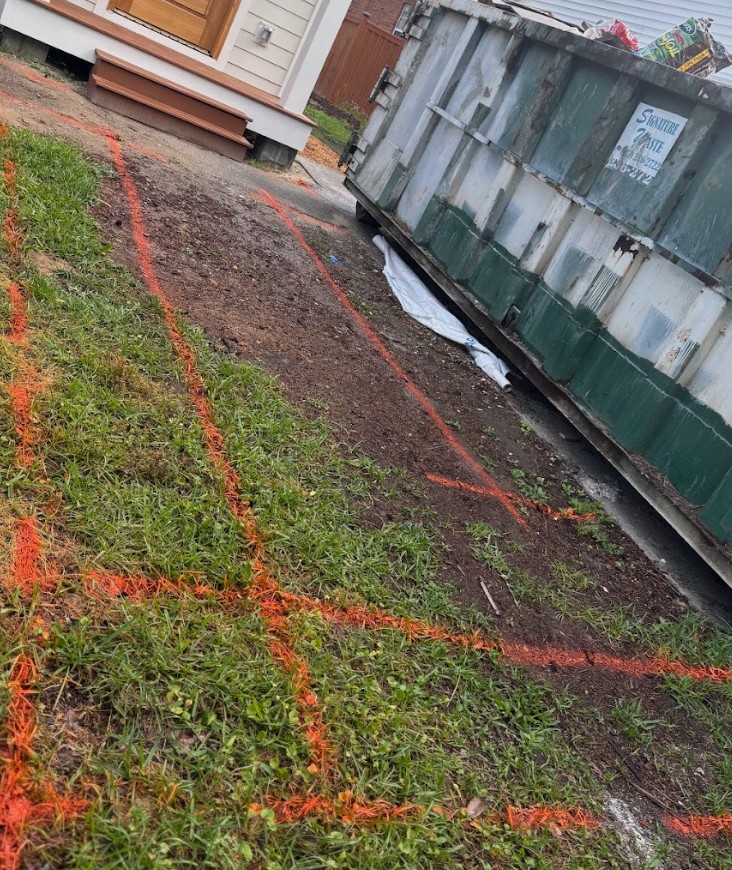
Perhaps the most critical and overlooked aspect of adding a new patio or walkway to your home or business is the base preparation. Proper base work prevents sinking, shifting, and water pooling, which is especially critical in Savannah and Coastal GA’s sandy or marshy soils. Good drainage ensures long-term stability but is also the difference between a quality hardscaping company and a less-than-stellar contractor.
Hardscape designs in Savannah, Pooler and Richmond Hill often require grading, French drains, or strategic slopes to manage the heavy Coastal GA rainfall and prevent yard flooding. We always consider water mitigation when designing hardscape features with clients and there are numerous routes to consider to help with draining issues.
Quick Highlights:
• Prevents shifting and sinking
• Protects against water damage
• Ensures long-term durability
14. How long do different hardscape materials last?
Pavers and natural stone can last decades in Pooler and Savannah when installed correctly, correctly being the key word. Concrete lasts long as well, but may be more prone to cracking due to the frequent soil shifts that will occur underneath the ground. The design of pavers is that the cracks or breaks in between each paver stone is designed to offer flexibility and prevent cracking.
Quick Highlights:
• Pavers: decades with care
• Natural stone: extremely long-lasting
• Concrete: strong but may crack over time
15. Can I make design changes once the project starts?
The short answer is always yes, you can change your design when a project starts. We always advise clients that minor changes are usually possible, but major shifts affect cost and timeline. Finalizing your design early is best, especially for larger projects and all change orders to require written communication and signatures to ensure quality and protection for both you, the customer, and us, the hardscaping installation company.
Quick Highlights:
• Minor tweaks possible
• Major changes impact cost
• Best to finalize early
16. What type of maintenance does a hardscape require?
The upside of hardscaping compared to a deck or fence is that maintenance is minimal and usually consists of some simple cleaning, joint sand refills, and resealing every few years to maintain appearance and durability.
Quick Highlights:
• Occasional cleaning
• Resealing every few years
• Checking for minor shifts
17. Do pavers or stones shift over time?

The quick answer is yes, pavers shift. The accurate answer is that slight shifting can occur, but a proper base greatly minimizes movement and makes leveling easy. Shifting is actually a good thing, whereas concrete cannot shift; thus, concrete cracks occur (learn about this repair project we did here where pavers shifted).
Quick Highlights:
• Slight movement possible
• Proper base limits shifting
• Easy to adjust or reset
18. Should I seal my patio or walkway?
Sealing helps protect against humidity, stains, and weathering. While staining is not required, many homeowners seal every 2–3 years for maximum longevity and appearance.
Quick Highlights:
• Protects color and surface
• Reduces stains and weathering
• Recommended every 2–3 years
19. How does hardscaping affect my home’s value?
Quality hardscaping adds strong resale value, especially in growing markets like Pooler and Richmond Hill. Outdoor living spaces are highly desirable across Coastal GA, and you can see ROI of 25-60%.
Quick Highlights:
• Strong ROI
• Better curb appeal
• More functional living space
20. Can hardscaping help with erosion control?
Yes retaining walls, proper grading, and smart drainage solutions help prevent erosion, especially in Savannah and Coastal GA neighborhoods with sloped or sandy soil. Hardscaping is one of the most effective ways to prevent erosion.
Quick Highlights:
• Retaining walls stabilize soil
• Proper drainage reduces washout
• Hardscape paths prevent worn areas
21. Can you build hardscapes in small or tight outdoor spaces?

Absolutely. Compact patios, corner fire pits, and efficient walkways are ideal for smaller Savannah (think downtown) or Pooler yards. Intelligent design maximizes every foot, and we can create some awesome living spaces for your yard!
Quick Highlights:
• Yes, with compact designs
• Use multi-purpose features
• Maximize every square foot
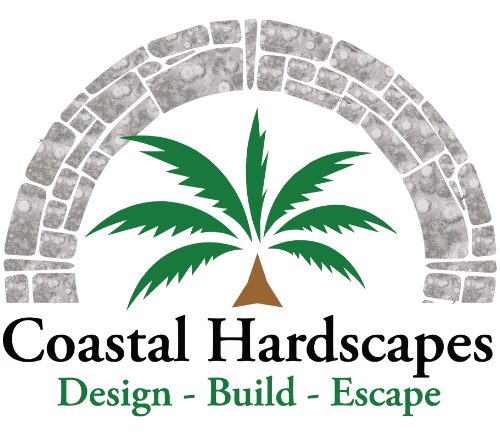
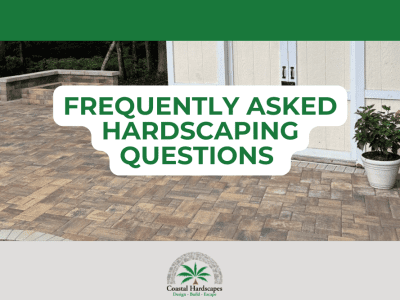
 Landscape Design for Georgia Homes: How to Create a Yard That Looks Good Year-Round
Landscape Design for Georgia Homes: How to Create a Yard That Looks Good Year-Round